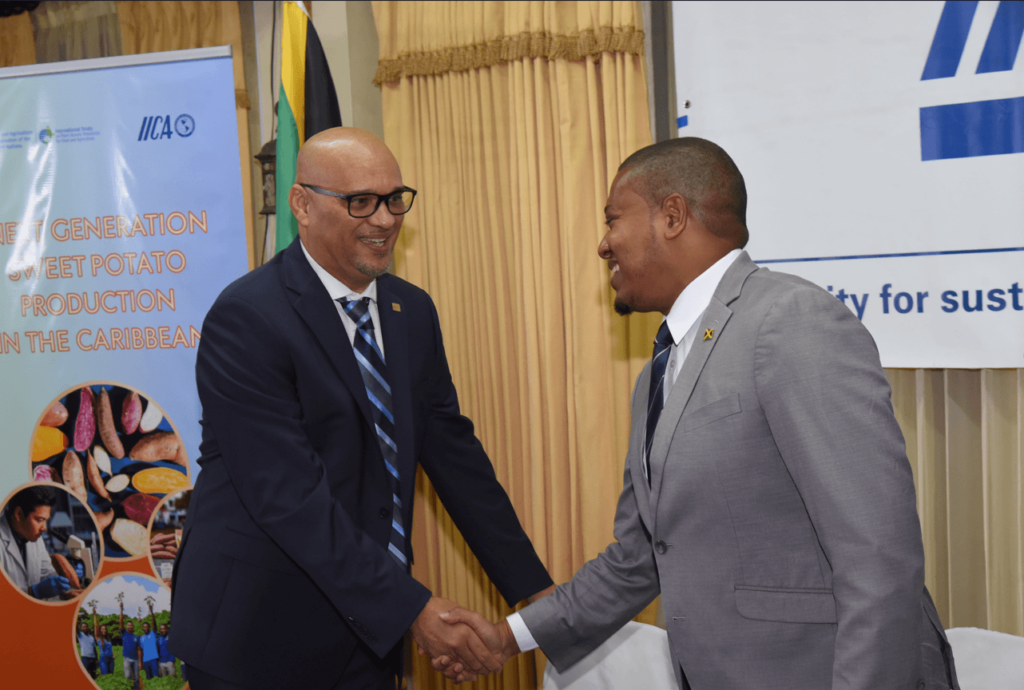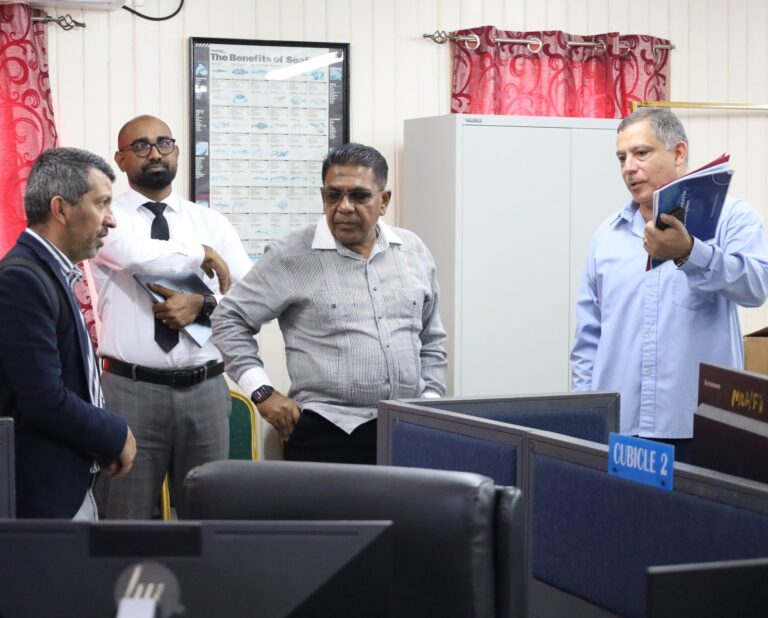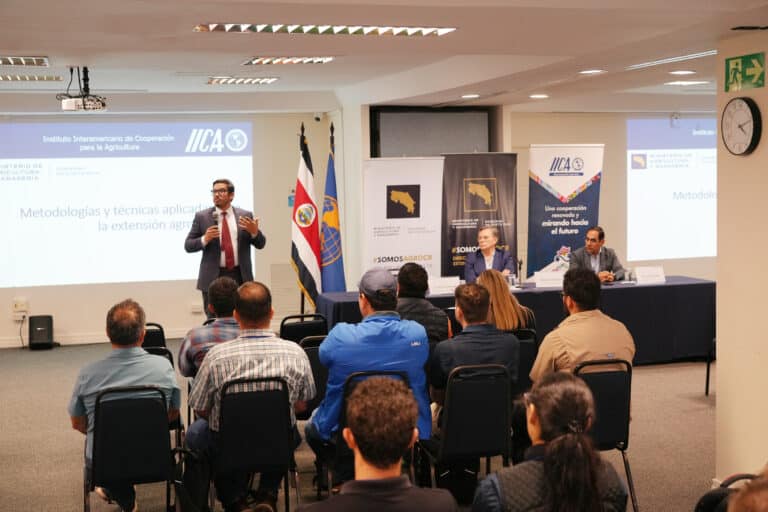
Kingston, Jamaica; Saint John’s, Antigua and Barbuda; Castries, Saint Lucia, 6 March 2025 (IICA). The Inter-American Institute for Cooperation on Agriculture (IICA) launched the Next Generation Caribbean Sweet Potato Production Project (NextGenSP) at an event held simultaneously in Jamaica, Antigua and Barbuda, and Saint Lucia.
The initiative, which will address critical challenges to sweet potato production, aims to unleash the crop’s full potential to improve food security in the region.
Sweet potatoes, a vital nutritional and economic resource in the Caribbean, thrive in the region’s tropical climate, but traditional agricultural practices, such as the continued use of planting material from previous production cycles, have led to the build-up of viruses and pests, reducing yields and affecting crop quality.
The NextGenSP project aims to overcome these challenges and boost the crop’s contribution to local and international markets.
Funded by the FAO, the International Treaty on Plant Genetic Resources for Food and Agriculture, and the European Union, this project will be rolled out over a four-year period in collaboration with the respective ministries of agriculture and the Caribbean Agricultural Research and Development Institute (CARDI) in Antigua and Barbuda, Jamaica and Saint Lucia.
Kent Coipel, IICA Representative in Jamaica, explained that the project is designed to build resilience, sustainability, and economic opportunities for farmers across the Caribbean. The regional initiative is a joint effort to harness the potential of sweet potatoes to boost agricultural growth and food security in the face of changing global challenges.
The initiative was warmly welcomed by Floyd Green, Jamaica’s Minister of Agriculture, Fisheries, and Mining. In his opening remarks, he stressed the key contribution that sweet potatoes make to regional food security, due to their versatility and potential to replace imports and, in particular, to reduce dependence on imported wheat flour and feed.

Floyd Green, Jamaica’s Minister of Agriculture, Fisheries, and Mining, delivered the keynote address
He highlighted Caribbean sweet potatoes’ great export potential, pointing to Jamaica’s successful exports to markets in Canada, the United Kingdom and other territories, which generated USD 3 million in 2024. However, he also underlined the region’s capacity to significantly expand this figure, especially in light of growing demand in key markets.
Gregory Bailey, Director of Agriculture of Antigua and Barbuda, emphasized the nutritional benefits of sweet potatoes, their adaptability and their potential for economic diversification.
Echoing the words of Minister Green, Kemuel Jn Baptiste, Director of Agricultural Services of Saint Lucia, stressed the crop’s export potential and explained the opportunities that exist for expanding the regional and global market.
International Crop Production and Innovation Specialist Elizabeth Johnson provided an overview of the NextGenSP project, focusing her presentation on the foundational principles of the sustainable use and equitable sharing of the benefits of plant genetic resources.
In his closing remarks, Gregg Rawlins, IICA Representative in the Eastern Caribbean States, acknowledged the vital contributions of partner organizations, including the FAO, CARDI, the World University Service of Canada, and the Centre for Agriculture and Biosciences International; and emphasized the importance of the efficient participation of each country’s ministry of agriculture to ensure the project’s success.

Elizabeth Johnson, International Crop Production and Innovation Specialist at the IICA Delegation in Barbados; Dionne Clarke Harris, CARDI Representative in Jamaica; Kent Coipel, IICA Representative in Jamaica; and Carla Douglas, Senior Research Director, Research and Development Division, Ministry of Agriculture, Fisheries, and Mining of Jamaica.
More information
Tamara Gentles
tamara.gentles@iica.int











